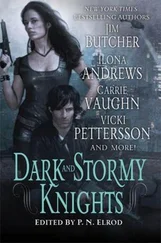Jeanine said, “Oh, Milton.” She took hold of his coat sleeve.
“Oh, Milton nothing. Shall we dance?”
He led her onto the dance floor. Jeanine moved with him to help him keep his balance.
“How are you Jennie? How are you?”
“I’m fine,” she said. “How are you?”
“Drunk. It helps. Never good at social things. I remember you in second grade, Jennie. In a yellow dress.”
“And a yellow sunbonnet,” Jeanine said. “You forgot the sunbonnet.”
“My memory is going. Next I’ll forget the dress and then where I am and then where my feet are. How is little Bea?”
A glittering ball beamed revolving fragments of light over potted palms, and a board with the increasing numbers of contributed boxes, that was marked out and rewritten as more and more people came in, and a map of the areas hardest hit by the dust storms, and red paper hearts were plastered up on the walls. They danced unsteadily in the fugitive illumination.
“Bea is up, and on crutches. She goes to school two times a week now.” Jeanine tried to smile.
“Darling girl.”
“Milton.”
“Jeanine,” he said. “Help me. Repair my ragged coat, feed me, listen to me, clean my glasses, carry me home in a wheelbarrow.”
Jeanine stood still and took his hand. “Let’s sit down.”
They sat down and Jeanine waved to her cousin Betty. Betty and her friend Leona lifted their paper cups and shouted as the band played “We’re in the Money.” Jeanine refused somebody who asked her to dance. Her drink was half-empty and she wondered if her cup leaked. But the Episcopalians didn’t particularly care if anybody drank. When she turned back to Milton her drink had been refilled and he half smiled at her as if he had been caught at something. A man in an Army Air Corps uniform came to their table.
“Do you mind?” he said.
“No, no, not at all.” Milt invited him with an open hand to dance with Jeanine.
She danced briefly with him. Then he said thank you and excused himself when he saw Mayme and her satiny auburn hair. Her sister was dancing with a young man in a bow tie and the airman tapped the young man on the shoulder and cut in. Mayme and the Air Corps fellow stepped gracefully across the sanded floor to “San Antonio Rose” and then they came to sit at the table and he shook hands with Milt and it seemed he could not stop smiling at Mayme.
He said he was home in Tarrant visiting, he had come all the way from Randolph Army Air Field in San Antonio. They had just finished grading off a four-thousand-foot strip before those new AT-6 trainers were taking off.
“Are you flying them?” asked Mayme.
“Nope. Maintenance. Single-engine.”
Milt said, “Jeanine, your face isn’t as long as it was a while ago.”
“How would I know,” Jeanine said. “I didn’t make my own face.” She put her hand to her chin surreptitiously, and then reached for her drink again.
Mayme and her Air Corps fellow with the wing-and-star patch on his shoulder were in a musical conversation as they danced a two-step to “You Are My Lucky Star.” Jeanine turned up her drink and emptied it.
Milton turned to her to say something, and then closed his eyes. He woke up in a moment and stared around himself, as if he expected to find he had disappeared from the dance and then maybe reappeared on some other planet. Then he fell asleep again sitting up. Jeanine fanned him with one of the bulletins and went and got a glass of water and sat it in front of him. He woke up and drank it all and shut one eye. Behind his thick glasses the one open eye wandered from one side of the hall to another. Jeanine wasn’t feeling all that great herself. Then two men came up behind Milton and stood there, looking at him for a few moments.
“Do you mind if we take him home?” said one of them. They seemed old enough to be his father and/or uncle. Their nails were stained very black. “We’re printers,” the other one said. “We’ve got to set type tonight.”
“He works too hard,” said the other. “Six days a week, ten hours a day.”
“One drink and he’s a vegetable.”
“A turnip,” said the other one.
“Almost never drinks.”
“He’s a doper. We take his needles away all the time.”
“So don’t judge him harshly,” said the other one. “Just because he’s knee-walking drunk.”
“He’s going to be talking to Beulah, the Queen of Porcelain.”
They chortled. Then they each took him under an arm on either side and walked backward as Milt’s heels dragged two lines on the dance floor and his thick glasses slid forward on his nose. They disappeared into the swinging kitchen doors that snapped shut with a brief flash of light and steam. Jeanine sat turned around in her chair, watching the door flap open and shut for a few times. They had done that before. She started to pull on her gloves. She would go outside and walk around in the fresh air rather than sit here looking like a Kewpie doll that nobody wanted to buy. She was angry and humiliated. It seemed that people were glancing at her in secretive ways so she stared straight ahead stiff as a hammer wanting to knock somebody on the head.
She had a hard time getting her gloves on. A big red pasteboard heart came loose from the wall and fell down onto the table and knocked over what was left of her drink. The rum and Coke ran off the edge of the tablecloth and splattered on her pumps and stockings. I am so mad, she said. She probably said it aloud. The rum and Coke smelled like something from hell. She wadded up the deceitful pasteboard heart and its fake paper lace and threw it on the floor. Her sister and the Army Air Corps man could hardly stop talking to each other. Her cousin Betty and Si were badgering the band for some swing music so they could jitterbug, and the dancing couples were all absorbed in one another, turning like planets in their own private courses. Jeanine thought about walking all fifteen miles home. Everybody else was having a good time; Mayme was clumsily trying to smoke a cigarette and laughing, fumes enveloped her hair, she looked both happy and flammable.
Jeanine turned to see Ross Everett sitting beside her.
He held his hat in one hand and in the other a cigarette glowed. He had apparently just skinned his knuckles. Jeanine tried to focus on him.
“Well, what brings you here?” She delicately lifted her hair away from her forehead, afraid she would poke herself in the eye.
“I volunteered to carry all the Red Cross boxes to Fort Worth,” he said. “To the Red Cross distribution depot.” He leaned back in his chair and crossed his legs at the ankles. His boots were shined.
“How’s my horse?”
“Good. I’ve plowed out an exercise track.”
“How’s the ranch? Meanwhile.”
“Meanwhile, back at the ranch.” The low light behind him lit up all his wool edges and his short-cropped hair. “Getting ready to buy up the mohair shear crop. Store it. Wait it out.” He drank from a small glass. “I’m throwing a tenant out of one of my tenant houses. That takes up a lot of time and yelling.”
“That’s cruel.” She sat up in a wave of indignation and then found herself unable to sustain it and fell back in the chair again. “That’s not fair.”
“No,” he said. “It’s not.”
“You’re throwing children out into the snow.”
“Throwing them out into the dust is probably just as good.” He reached across the table and picked up her hat, inspected it, and then put it down again. “I’m trying to think of a compliment. I love that ratty squirrel fur collar.” He thought again. “And the color of your dress is very good for you. A kind of furious bloody purple.”
“I’ve been abandoned right here in front of strangers.”
Читать дальше












